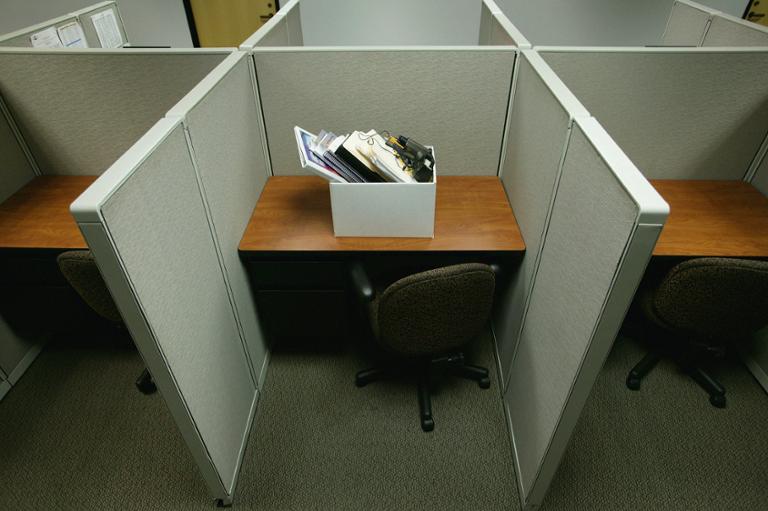In your career, you may have to resign from a job. Resigning in as professional a manner as possible can help your remaining time on the job feel less stressful, and will keep you in good stead with the company you’re exiting. With a ll that in mind, what’s the best way to write a resignation letter?
First and foremost, a resignation letter should communicate the basic facts: that you are leaving, when your last day will be, and information on any projects you’re still working on that might require help or someone to take over.
“Keep your resignation letter short and to the point,” advises career coach Dr. Kyle Elliott. “Less is more when resigning. Express your gratitude for your time with the company, confirm your intended last date of employment, and explain that you'll be following up with a transition plan. Focus on the facts, and that's it.”
What to include in your resignation letter
You should send your resignation letter to the person you report to. If you’re a senior executive, this will be a panel or board of directors. But for most tech professionals, you will be addressing one person.
Here’s what a good letter of resignation should have:
- An introduction. Keep this brief and professional. While you might typically address your boss casually, simply starting your resignation letter with “Dear [name]” is your best option. A brief, professional introduction sets the tone for your letter.
- The facts. Let your leader know you are leaving your role at the company and when you intend your last day to be. Two weeks’ notice is standard, but some positions will require more time for a solid transition. Be prepared for the company to ask you to leave immediately, too.
- Your reason for leaving (optional). If your resignation letter is the right time to discuss why you are leaving, do so. Keep in mind your resignation letter is not the forum for unfounded accusations. Instead, keep your reasons factual if you’ve encountered problems with the company. If you’re simply leaving for better pay, it might be best to leave that out of your resignation letter.
- Positive affirmations about your time with the company. Discuss what you’ve liked about working at the company, what you’ve learned, your top accomplishments, and how you’ve enjoyed working with the team. “Be sincere,” says Samantha Odo, COO of Precondo. “Express your decision to leave without unnecessary fluff or arrogance. It's okay to acknowledge that it wasn't an easy decision, but avoid dwelling on the negatives. You want to leave on a positive note, so focus on the opportunities that lie ahead rather than the reasons behind your departure.”
- Information on handing duties or projects off. Note what you’re working on, whether you can finish before your proposed last day, and who may be best for various projects or duties if things can’t be completed before you leave. Offer to aid in the transition in any way you can.
- Appreciation. Express gratitude for your time at the company; offer to discuss your departure whenever is best for them.
- Your contact information. Let your boss know where they can reach you if they don’t have that information readily available. They may need to connect after you’ve left for clarification on something.
What not to include in your resignation letter
“[Your resignation letter] is not the time to vent or air your dirty laundry,” advises Dr. Elliott. “It's also not the time to get back at someone. You do not need to provide a reason you're leaving or any details on where you're going next in your resignation.”
Odo agrees: “No matter how tempting it may be, refrain from venting your frustrations in your resignation letter. This is not the time to list everything you hated about the job or the people you worked with. Keep it professional, and if you have constructive feedback, save it for an exit interview if one is offered.”
Avoid making promises you can't keep, Odo adds: “If you're leaving for a better opportunity, that's great, but don't over-promise about staying in touch if you don't intend to. It's better to under-promise and pleasantly surprise them later.”
It’s best not to mention where you are going, either. Your company may view you going to a rival as cause to dismiss you immediately or make your remaining time there uncomfortable.
Resignation letter template
Our template involves a “subject line” because our experts agree you’re expected to resign via email. Our experts also advise you not to resign via chat platforms like Teams or Slack. Those are meant for conversations; emails are considered formal communication.
Resignation letter template:
Subject line: Resignation - [your name]
[your boss],
I am resigning from my role as [job title]. My last day with [company] will be [date].
My time with [company] has been wonderful. I’ve enjoyed working on [project] with [team], and the company culture has made me feel more than welcome in my tenure here. The team I’m part of and the culture made my decision to leave difficult, but I think it’s the necessary choice at this time.
I’m working on [projects] and will complete [tasks] before my last day. If [task] is not finished before I leave, I’d be happy to hand it off to [teammate] and brief [teammate] accordingly. Please let me know if you’d like me to do anything else before [date of last day].
Should you want to discuss my resignation directly, I’ll be available whenever is best for you. My goal is to make any transition as easy as possible.
Thank you for all you’ve done for me at [company]. Should you need to reach me after [date of last day], feel free to email me at [personal email] or call me at [mobile number].
[Your name]
Example resignation letter:
Resignation - Dave Smith
Dear Tom,
I’m writing to inform you I am resigning as office manager. My last day with the company will be January 31.
My time here has been incredible. I’ve enjoyed working with the entire team, primarily as we all worked to digitize our office files. It was challenging work that pulled us together as a team.
As I transition out of my role, it seems appropriate that I work closely with Sharon on day-to-day duties that will need to be tended to after I leave on January 31. Should you need to discuss my resignation or a transition plan, I’ll be available to chat anytime convenient that is for you.
Thank you for all you’ve done for me, Tom. Your leadership and guidance have been a great help to me and the rest of the team. If you need to reach me after January 31, please email me at davesmith@anyemail.com or call me at 555-123-4567.
Dave Smith
Conclusion
Resigning from a job can be challenging and stressful. Even if you’re burnt out and ready for it all to end, the final act of sending in your resignation letter is often fraught with second-guessing.
Keep things brief, professional, and courteous. No matter what has caused you to leave your job, your remaining days there will be part of your legacy.



